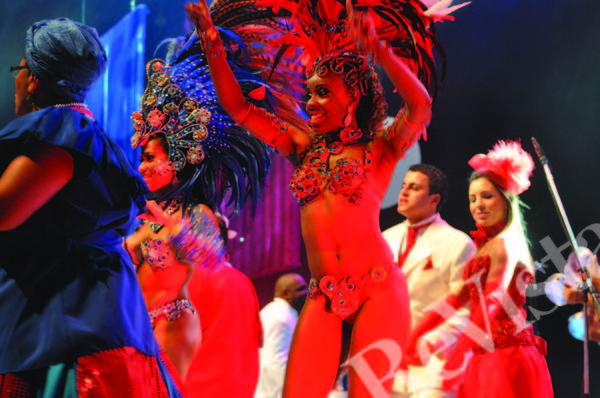Some fans wrote and said that they did not understand the fact of me being interviewed by a publication directed toward blacks. I repeat: I’m black.Posted in Excerpts/Quotes on 2021-02-09 18:29Z by Steven |
It may be strange, but sometimes I’m embarrassed for not having remarkable stories of racism in my life. As much as I insist on reaffirming my black roots, people always think the opposite. It’s very uncomfortable and it is as terrible as the most pure prejudice. From the moment I became known to the general public, the situation became even more evident. I’m used to being stopped in the streets by people who find it strange the fact that my skin is light, my features are aquiline and my hair straight. They ask why I insist on saying that I am black being “so cute”. It’s absurd. It’s as violent as if I was barred from a restaurant or a hotel because of my color. I am very like my mother, the former model Vera Lúcia Manhães, who has my color. My father, Antônio Pitanga, is black. There were times when I was very saddened by this attitude, but today I face this more naturally. I don’t care, for example, the comments that I heard after being on cover of Raça Brasil (magazine). Some fans wrote and said that they did not understand the fact of me being interviewed by a publication directed toward blacks. I repeat: I’m black.
Marques Travae, “Camila Pitanga on people questioning her blackness: “It’s as violent as if I was barred from a restaurant or a hotel because of my color.”,” Black Brazil Today, February 11, 2012. https://blackbraziltoday.com/camila-pitanga-on-people-questioning-her-blackness/.

